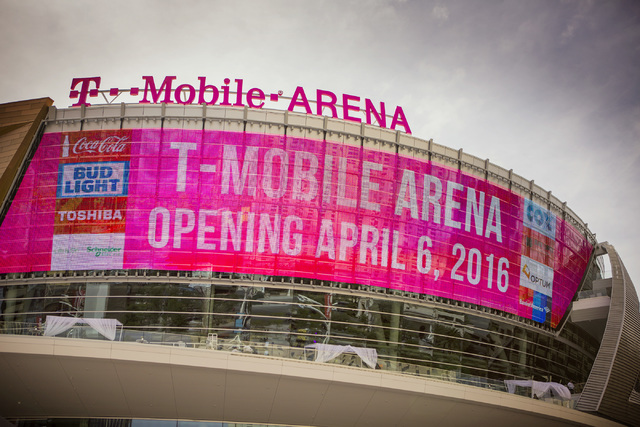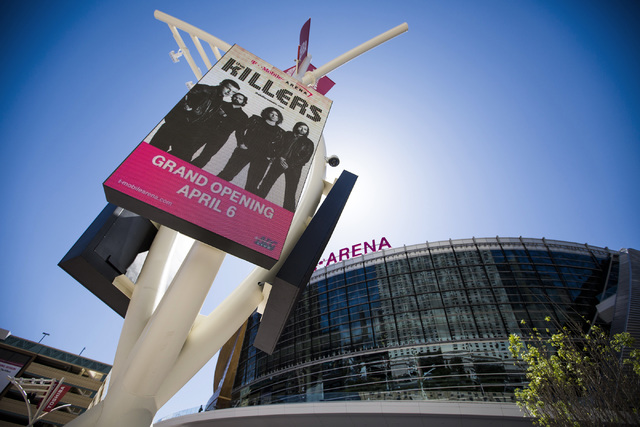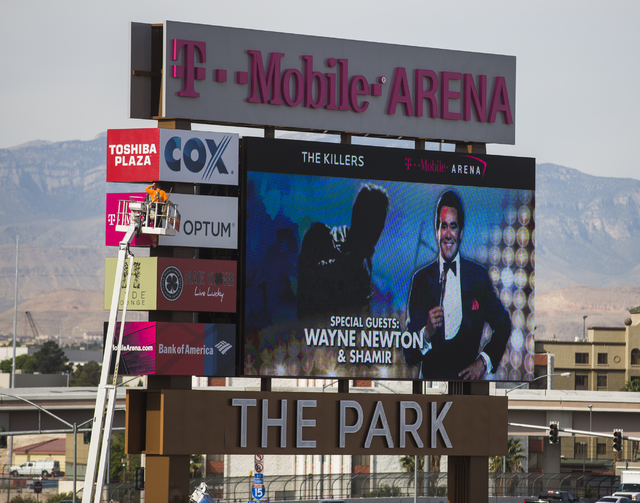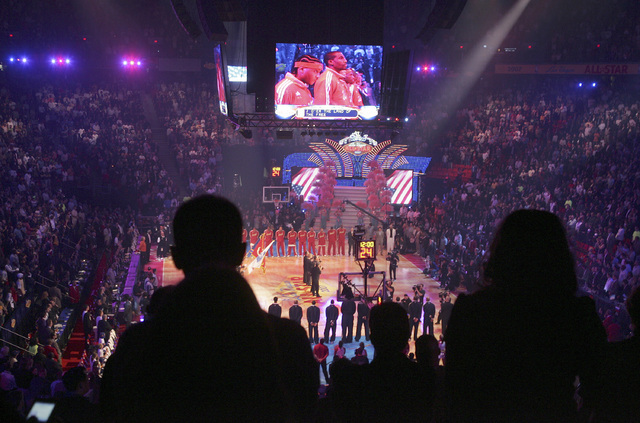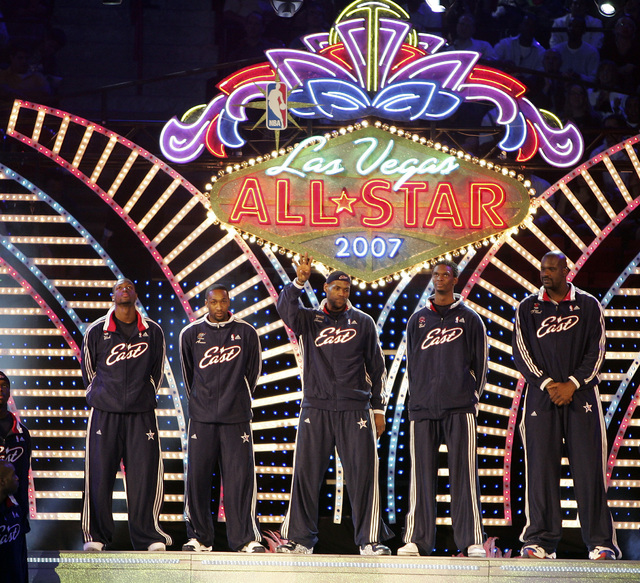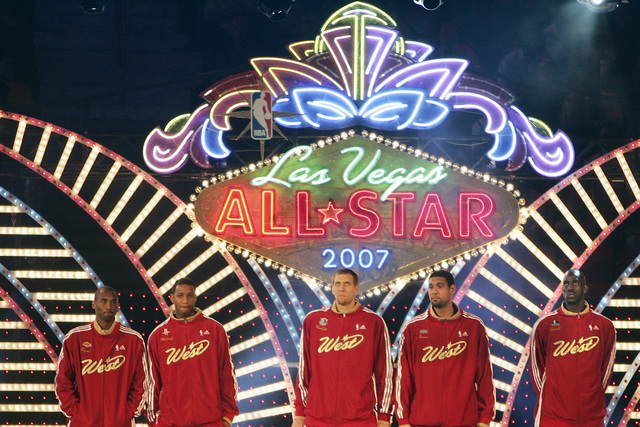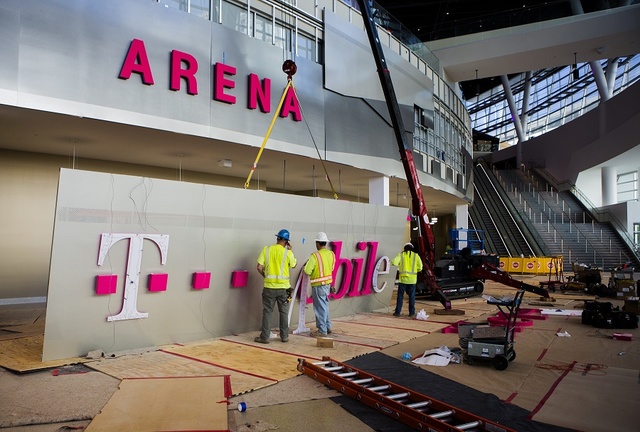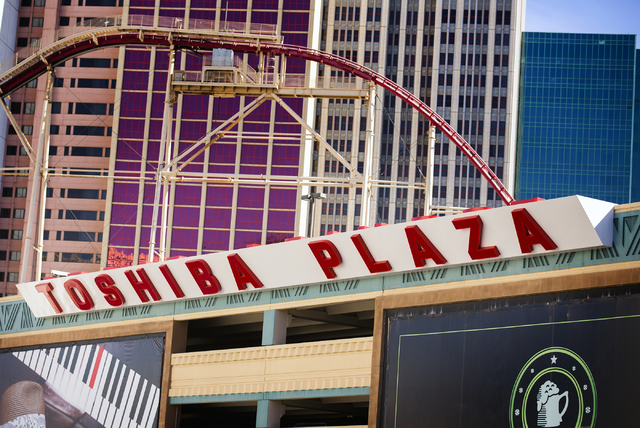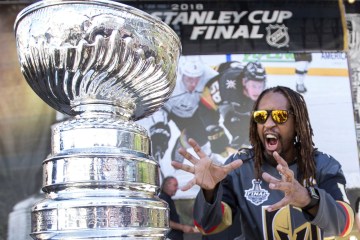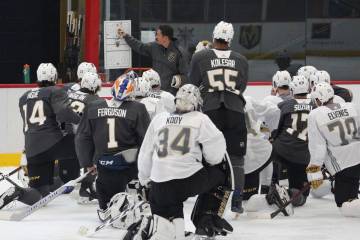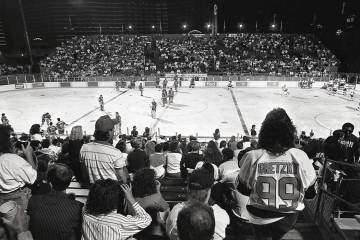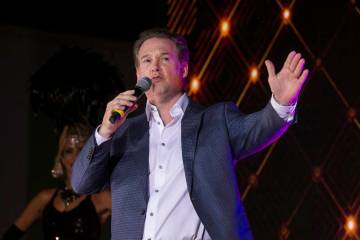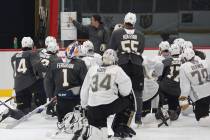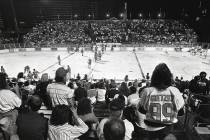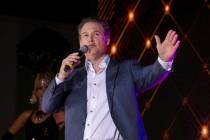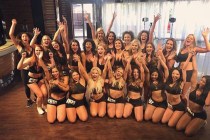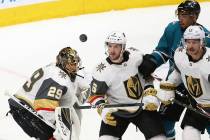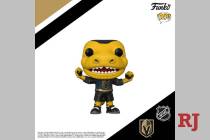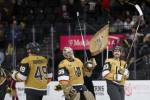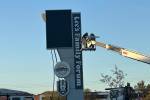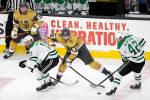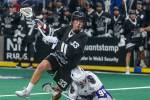What if T-Mobile Arena had been built earlier?
It’s one of the most compelling questions in sports.
What if?
Those who follow sports at any level know how maddening that question can be. And Las Vegas has its share of “what if” moments.
This week, the Review-Journal is running a five-part look at those crucial events that shaped the city’s sports landscape:
The Review-Journal played out all of those scenarios, and the local sports landscape would have been considerably different.
That shows how one play or one decision can have ramifications that lasts years. If the call had gone the other way on Anthony, for example, the Rebels probably would have won a second national championship in a row and continued momentum for more than just another season.
Now that’s a painful what if.
Here’s a look at the question what if the Great Recession hadn’t delayed construction of a state-of-the-art Strip arena?
What actually happened
The major announcement was made that Anschutz Entertainment Group and Harrah’s would build a privately financed arena on the Strip.
“We have never announced a deal and not built,” AEG CEO and president Tim Leiweke said.
It was Aug. 23, 2007.
Then came the Great Recession.
Leiweke wasn’t wrong, of course. The arena did get built, but only after a significant delay as Southern Nevada, especially hard hit in the housing market, struggled to recover economically.
Eventually, another announcement came March 1, 2013, this time with AEG teaming with MGM Resorts International. Ground was broken on what would become known as T-Mobile Arena on May 1, 2014.
Building the arena, which opened April 6, 2016, led to Las Vegas landing its first major professional sports team in the NHL’s Golden Knights, who begin play in October.
What could have happened
If the economy hadn’t crashed, AEG would have moved forward with its plans to build an arena. If the timeline had played out as it did for T-Mobile, the building would have opened in late 2010.
And instead of an NHL team as the tenant, an NBA club probably would have been the first major pro team in Las Vegas. Knights owner Bill Foley wasn’t thinking about getting into the NHL at that time.
Plus, then-NBA commissioner David Stern clearly had Las Vegas on his mind as an eventual home for a franchise when he awarded the 2007 All-Star Game to the Thomas & Mack Center, though some of the shenanigans around the game left a stain on the city.
The Sacramento Kings were owned by the Las Vegas-based Maloof family, which had been wanting a new arena. Stern made it clear he wanted them to stay put when he denied bids to move them to Anaheim and Seattle.
But the then-Hornets were on thin ice in New Orleans. The league bought the team from George Shinn and ran it. And the attendance was dwindling since the team’s move to the Big Easy in 2002 and on the heels of Hurricane Katrina’s aftermath.
Stern already had orchestrated the creation of the Summer League in Las Vegas beginning in 2004, showing the NBA was the first to embrace the city. The Hornets’ move would have taken place before the 2011-12 season, quickly getting the league out of the franchise ownership business.
So Las Vegas would have just finished hosting its sixth NBA season, and with an exciting market with no state income tax in which to attract top free agents.
The city would have embraced Anthony Davis and, surprisingly, DeMarcus Cousins, who could be frequently seen on The Strip.
The franchise might have been a playoffs force, especially if it hung onto Chris Paul, and there never would have been a team called the “Pelicans.”



